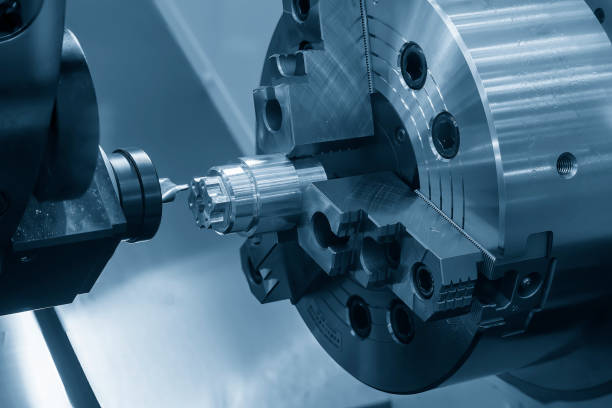What is a CNC Engineer?
What is a CNC Engineer? A CNC Engineer is a highly skilled professional responsible for programming, setting up, and maintaining Computer Numerical Control (CNC) machinery used in manufacturing. They play a pivotal role in industries ranging from aerospace to automotive, ensuring parts are made accurately and efficiently. A CNC engineer doesn’t just run the machines; they design the programs, solve production problems, and optimize the entire machining process for efficiency. This article explores the responsibilities, skills, and career path of a CNC engineer, emphasizing their importance in the modern manufacturing landscape.
Understanding the Role of a CNC Engineer
1. The Basics of CNC Engineering
A CNC Engineer is more than just an operator. They are professionals who understand both the hardware and software aspects of CNC machines.
- Programming Skills: CNC Engineers must know how to write and modify G-code, the language that CNC machines use to function.
- Machine Setup: They are also responsible for setting up tools, choosing cutting parameters, and ensuring that the machine runs properly.
- Maintenance and Troubleshooting: Regular maintenance and the ability to troubleshoot issues are crucial components of a CNC Engineer’s job.
Discover our range of CNC Spindles that help enhance the performance of CNC machines.
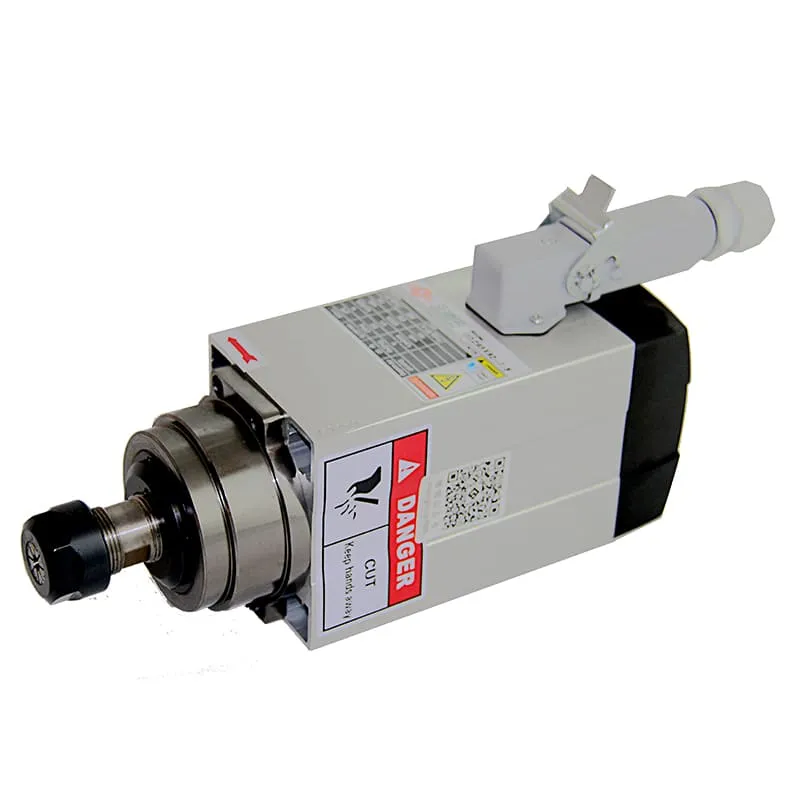
2. Key Responsibilities of a CNC Engineer
The responsibilities of a CNC Engineer vary depending on the industry but generally include:
- Programming CNC Machines: Developing the code that directs the machine on how to cut, shape, or drill materials.
- Setting Up Machines: CNC Engineers also install tooling, align the workpiece, and make necessary adjustments before production begins.
- Optimizing Processes: They look for ways to improve production efficiency by changing the machining strategy or selecting more suitable tools.
Upgrade your machine with our 1.5KW ER11 Square Air-Cooled Spindle to enhance the machine’s capability.

Skills Needed to Become a CNC Engineer
1. Technical Skills
To succeed as a CNC Engineer, one must possess a combination of technical and problem-solving skills.
- CNC Programming: A deep understanding of G-code and other programming languages is necessary.
- Material Knowledge: CNC Engineers must understand the different properties of materials—metal, plastic, or composite—and how they react to machining processes.
- CAD/CAM Software: Familiarity with Computer-Aided Design (CAD) and Computer-Aided Manufacturing (CAM) software helps in creating machining programs.
Check out our 2.2KW ER25 Square Air-Cooled Spindle to support high-precision operations.
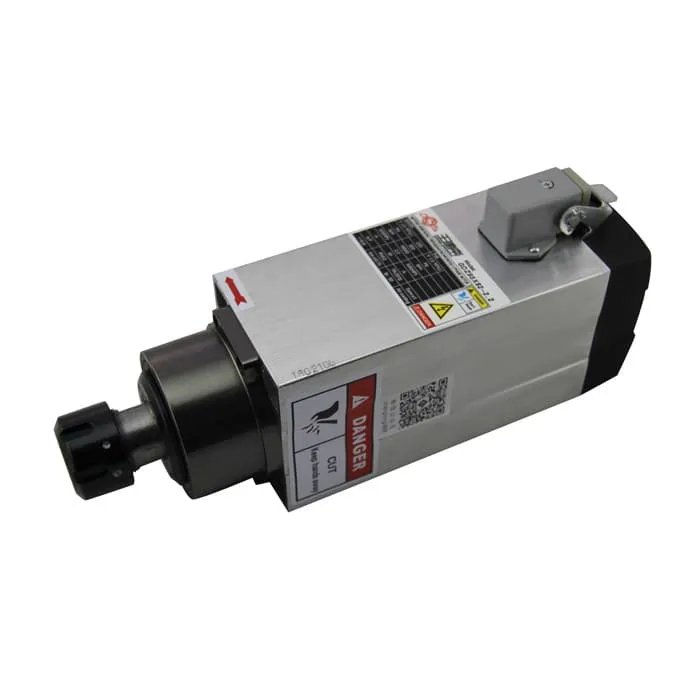
2. Soft Skills
Apart from technical skills, a CNC Engineer must have certain soft skills to excel in their career.
- Problem-Solving: Troubleshooting mechanical and software-related issues quickly is vital.
- Attention to Detail: CNC machining requires high levels of precision. Any mistake in programming could lead to costly errors.
- Team Collaboration: CNC Engineers often work closely with other engineers, machinists, and designers, requiring good communication skills.
Explore our 3.5KW ER25 Air-Cooled Spindle to enhance team production outcomes.
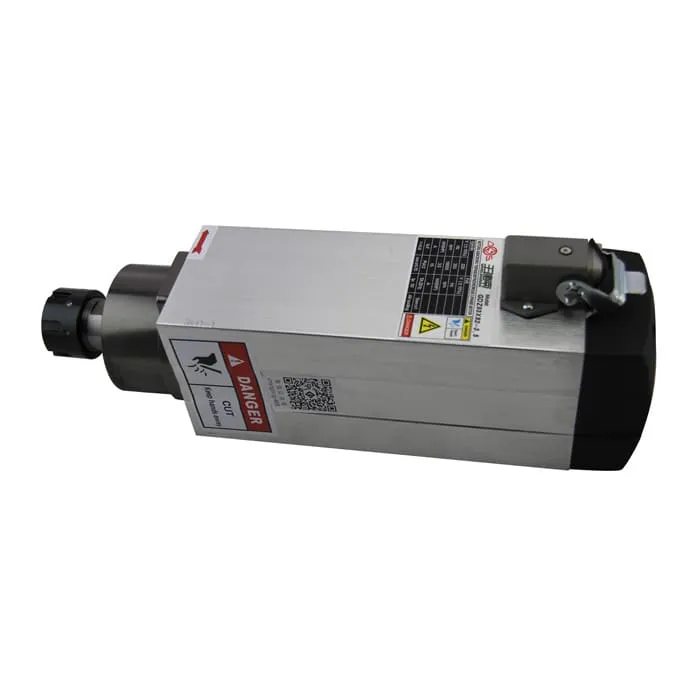
Types of CNC Machines Managed by CNC Engineers
1. CNC Milling Machines
CNC Milling Machines are among the most commonly used CNC machines, used for cutting and shaping various materials. CNC Engineers program these machines to create precision parts for different industries.
- Vertical Milling Machines: Ideal for producing flat surfaces and machining large pieces.
- Horizontal Milling Machines: Suitable for creating slots and grooves.
Consider our 6KW ER32 Air-Cooled Spindle for horizontal milling applications.
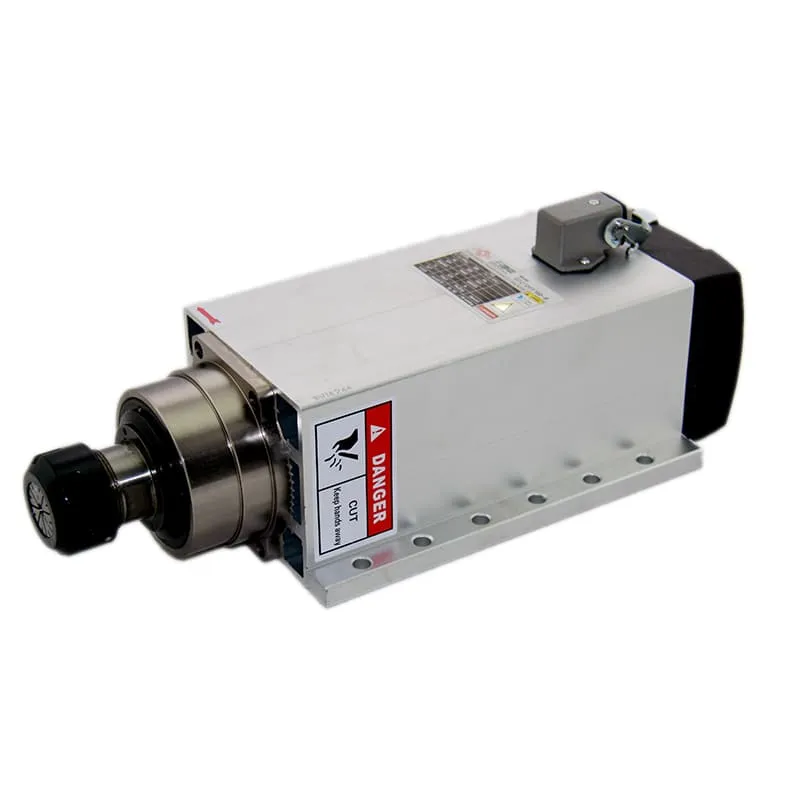
2. CNC Lathes
CNC Lathes are used to create cylindrical parts by rotating the workpiece while a stationary tool shapes it.
- Turning Operations: CNC lathes are perfect for producing shafts, bushings, and threads.
- Multi-Axis Lathes: These machines allow for more complex operations involving multiple axes.
Explore our 800W ER11 Air-Cooled Spindle for CNC lathes to enhance lathe performance.
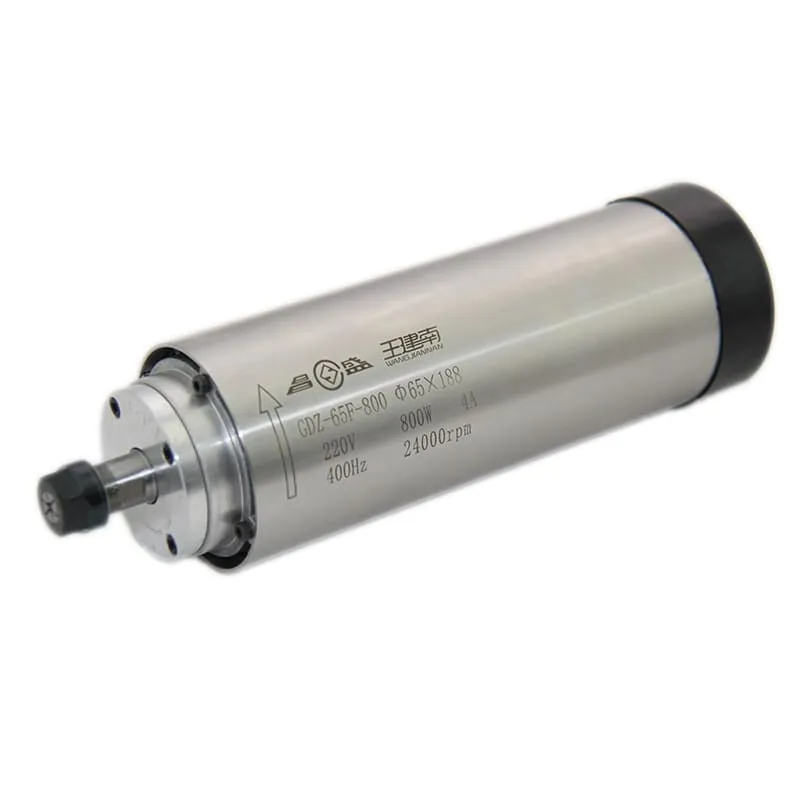
Career Path to Becoming a CNC Engineer
1. Education and Training
Becoming a CNC Engineer generally requires a combination of education and practical experience.
- High School Diploma: A basic requirement, ideally with coursework in mathematics, physics, and computer science.
- Technical School or College: Many CNC Engineers attend technical schools to receive formal training in CNC programming, machining, and CAD/CAM software.
- Certifications: Certifications from recognized institutions, such as the National Institute for Metalworking Skills (NIMS), are highly beneficial.
Discover our 1.5KW ER11 Round Air-Cooled Spindle for enhancing practical training.
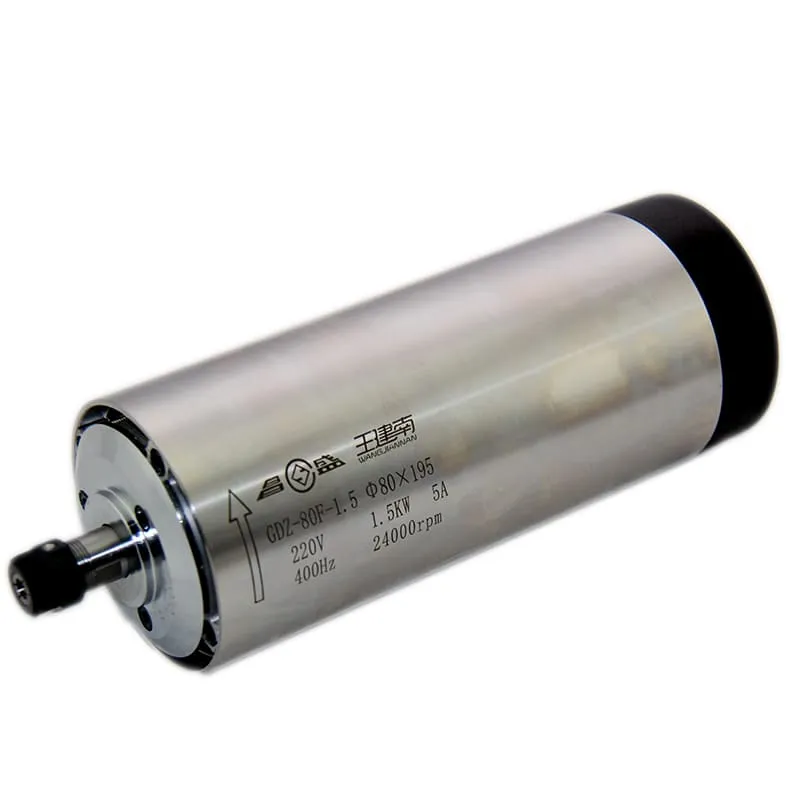
2. Gaining Experience
Practical experience is crucial for any CNC Engineer. Most individuals start as CNC operators, where they learn the basics of machine setup and operation, and then move up to the engineering role.
- Internships: Internships provide hands-on experience and are often the first step towards gaining full-time employment.
- Junior Engineer Roles: Many start as junior CNC engineers before taking on more responsibilities and eventually moving up to senior roles.
Upgrade with our 4.5KW Air-Cooled Spindle with Flange for advanced engineering roles.
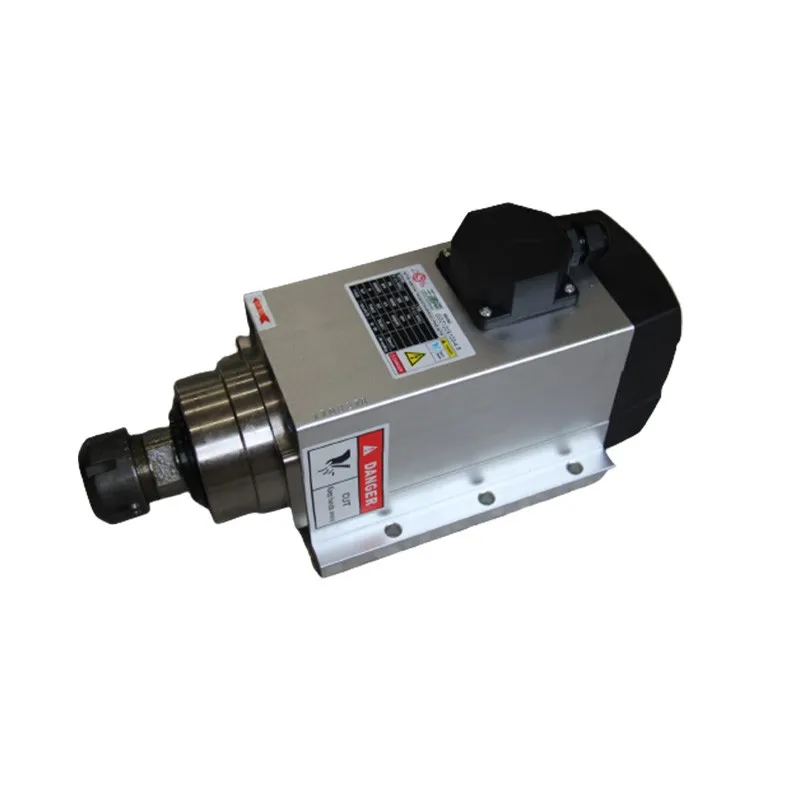
Benefits of CNC Engineers in Manufacturing
1. Efficiency and Quality Control
CNC Engineers bring efficiency and quality control to the manufacturing process. By automating repetitive tasks, they allow companies to achieve consistent quality while reducing manual labor costs.
- Reduced Error Rates: By automating the machining process, errors are significantly reduced.
- Improved Workflow: CNC Engineers often look for ways to streamline production processes, which helps in reducing cycle time and increasing throughput.
2. Innovation and Problem Solving
CNC Engineers are at the forefront of innovation in manufacturing. By improving processes and optimizing machine setups, they contribute significantly to product development.
- Continuous Improvement: CNC Engineers continuously update the G-code and adjust machine parameters to keep up with changing production needs.
- Complex Projects: They also make it possible for manufacturers to undertake complex projects that require advanced tooling and multiple stages of machining.
Conclusion: The Role of CNC Engineers in Modern Manufacturing
What is a CNC Engineer? A CNC Engineer is much more than an operator; they are the backbone of any automated machining process, ensuring that parts are produced efficiently, accurately, and to the highest standards. They combine programming, mechanical knowledge, and problem-solving skills to keep modern production lines running smoothly. From programming CNC machines to troubleshooting mechanical issues, the role of a CNC Engineer is both versatile and essential in the manufacturing industry.

